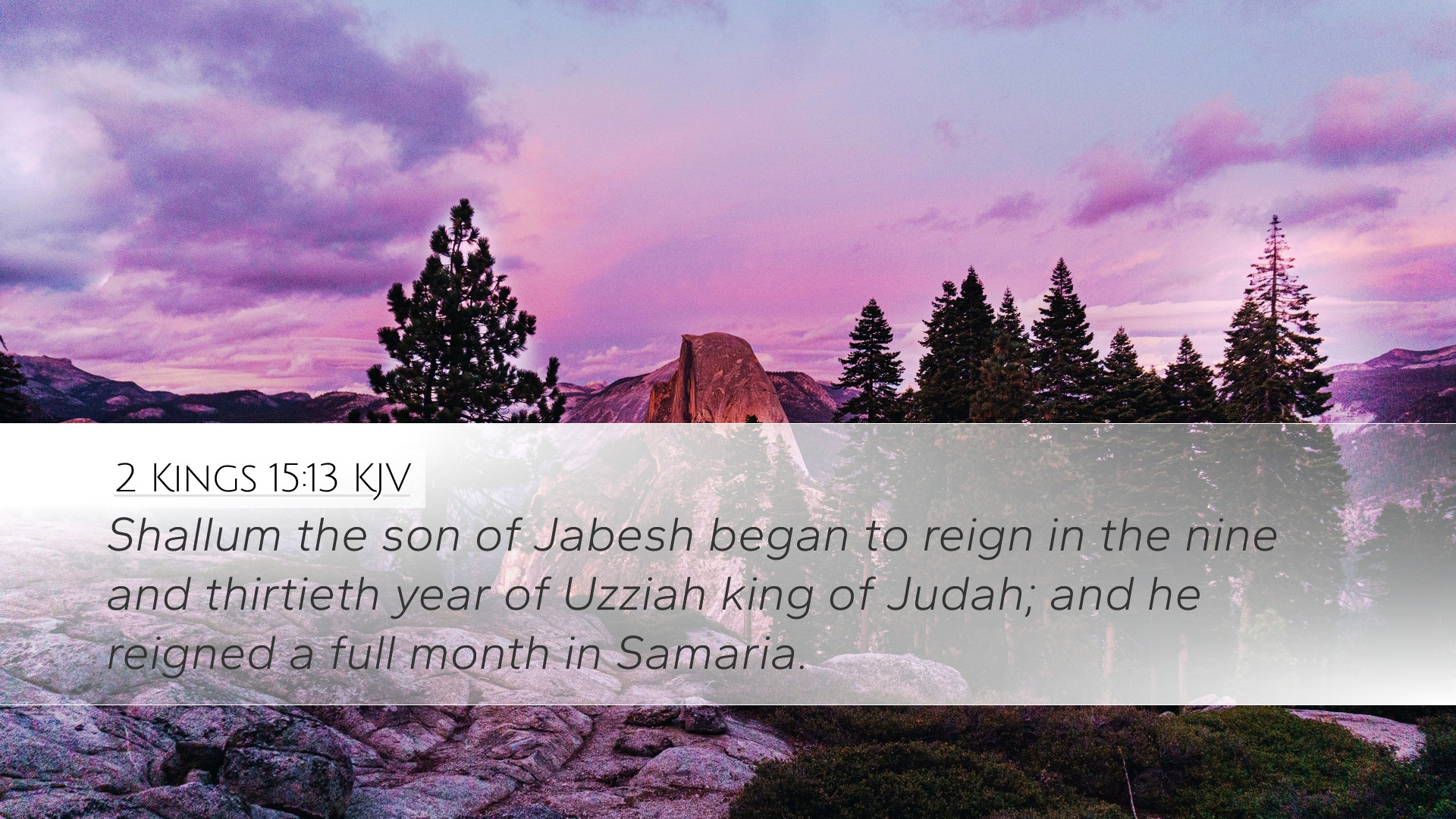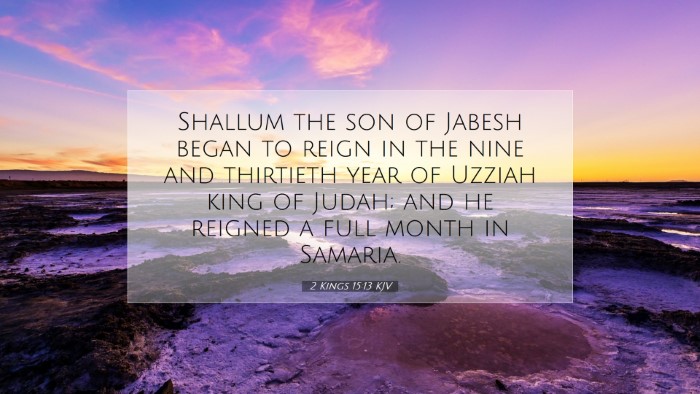Commentary on 2 Kings 15:13
Verse Text: "Shallum the son of Jabesh conspired against him, and smote him before the people, and reigned in his stead." (2 Kings 15:13)
Introduction
This passage marks a significant moment in the history of Israel's monarchy, elucidating the violent transitions of power and the political intrigue prevalent during this period. The historical context is crucial for understanding the implications of Shallum's rise to power as well as the consequences that ensued.
Historical Context
According to the historical books of the Old Testament, Israel experienced a tumultuous series of leadership changes filled with conspiracies and assassinations. Shallum son of Jabesh's coup against Zechariah, the son of Jeroboam II, reflects the intense rivalry and instability within the monarchy. The reigns of the kings from this period often ended abruptly, signifying a turning point for both the leaders and the people of Israel.
Insights from Public Domain Commentaries
Matthew Henry's Commentary
Matthew Henry provides a detailed examination of Shallum's actions, emphasizing the immediate political motivations and the moral decay evident in Israel's leadership. He notes:
- Conspiracy and Violence: Henry underscores that Shallum's conspiration was not merely an act of rebellion but an emblem of a deeper moral crisis. He illustrates how violence became a common instrument for political change.
- Public Approval: The phrase "before the people" suggests that Shallum sought legitimacy in the eyes of the public, a theme Henry points out, arguing that leaders often exploit public sentiment to justify their actions.
Albert Barnes' Notes on the Bible
Barnes emphasizes the brevity and tumultuous nature of Zechariah's reign, which lasted only six months. He states:
- Rise to Power: The passage details Shallum's rise as a calculated and premeditated act. Barnes correlates this with the overall pattern of instability in the northern kingdom of Israel.
- Divine Judgment: Barnes suggests that such coups can be seen as manifestations of God's judgment, as unfaithfulness to God often precipitated political chaos.
Adam Clarke's Commentary
Clarke provides a theological lens through which to view Shallum's actions, interpreting them within the framework of God's sovereignty:
- Divine Sovereignty: Clarke states that even in the chaotic actions of leaders, God's will is being fulfilled. Shallum's rise is seen as part of a larger divine plan.
- Character of Leaders: Clarke contrasts the character of Shallum with that of Zechariah, implying a divine contrast between an unfaithful ruler and the consequences of such leadership.
Theological Implications
This verse invites reflection on several key theological concepts:
- The Nature of Leadership: Examining the motives and actions of leaders in this narrative raises questions about ethical governance and accountability under God.
- God’s Sovereignty versus Human Actions: The tension between divine plans and human decisions is a topic of ongoing theological discussion. Shallum's rise is a case study of how God can use flawed human actions to fulfill His purposes.
- Judgment and Faithfulness: The instability of Israel's kings serves as a reminder of the covenantal obligations of the people and their leaders. Their failure led to cycles of judgment, which is a theme prevalent throughout the Old Testament.
Conclusion
2 Kings 15:13 presents a powerful commentary on the nature of political power and the often-violent means by which it is obtained. Through the insights provided by classical commentaries, we can better understand the implications of Shallum's actions, the atmosphere of instability in Israel, and the overarching narrative of divine sovereignty in a world of chaos. As pastors, students, theologians, and scholars, it is critical to extract lessons from these historical events that can be applied today in discussions of authority, ethics, and divine providence.


